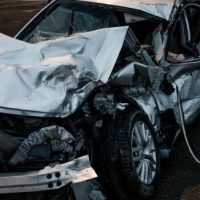How Drunk is Too Drunk in a Drunk Driving Accident?

One for the road is one too many. In fact, just one drink is one too many. The impairing effects of alcohol kick in after the first drink. These impairing effects include clouded judgement and slow motor skills. One out of two is bad enough. The combination of both is often deadly behind the wheel. The number of alcohol-related accidents have increased significantly in recent years.
So, if the tortfeasor (negligent driver) showed any signs of impairment at the scene, such as slurred speech or bloodshot eyes, or even if the tortfeasor recently patronized a restaurant where alcohol was served, a Winter Park personal injury lawyer can obtain substantial compensation for victims. This compensation usually includes money for economic losses, such as medical bills, and noneconomic losses, such as pain and suffering.
Ordinary Negligence
Most drivers are negligent if they breach the duty of reasonable care. This legal responsibility requires drivers to be at their best, mentally, physically, and otherwise, when they get behind the wheel. People who drink are at less than their best, mentally and physically speaking, as outlined above.
We mentioned some physical signs of impairment which a Winter Park personal injury lawyer can use in court. The tortfeasor’s statements about alcohol use, such as the classic “I only had one or two beers” line, is usually admissible as well, especially if an emergency responder records that remark in the official report.
If a breach of duty causes injury, compensation is available, as mentioned above. Usually, ordinary negligence cases settle out of court. These resolutions allow victims to retain control over the outcome and receive their settlement checks sooner.
Tortfeasors are individually responsible for the wrecks they cause. You break it, you buy it. Frequently, a third party is responsible for damages in these cases. Florida’s dram shop law holds restaurants, bars, and other commercial providers liable for damages if they illegally sell alcohol to people who later cause crashes.
An illegal sale includes a sale to an individual who’s habitually addicted to alcohol. Evidence of habitual addiction includes the tortfeasor’s statements, as mentioned above, eyewitnesses who saw the tortfeasor drinking on previous occasions, and alcohol purchase records.
Negligence Per Se
If an emergency responder cites a tortfeasor for DUI, the tortfeasor could be liable for damages as a matter of law, under the negligence per se rule. This legal doctrine applies if:
- A tortfeasor violates a penal safety law, like the DUI law, and
- That violation substantially causes injury.
If the tortfeasor violates a non-penal safety law (e.g. gets a speeding ticket), negligence per se is a presumption of liability, not absolute proof of responsibility.
Tortfeasors often beat DUIs in criminal court, perhaps because the breathalyzer wasn’t working right. But criminal court outcomes don’t matter in civil court. A civil jury determines all the facts in a civil case, including guilt or innocence of a DUI.
Third party liability could apply in negligence per se cases, as outlined above. Vicarious liability is very important in alcohol-related wrecks. Many tortfeasors don’t have large enough insurance policies to cover all the victim’s losses.
Work With a Thorough Orange County Lawyer
Injury victims are entitled to substantial compensation. For a confidential consultation with an experienced personal injury lawyer in Winter Park, contact Goldman Law, P.A. We routinely handle matters throughout the Sunshine State.
Source:
nsc.org/getmedia/9f523dba-b7ec-4c66-9f7c-f360e4ea45dd/low-alcohol-risk.pdf.aspx?srsltid=AfmBOoqrOZ5wg-orI_Tx9zUq9Xp8Wci6BfJrGz7jcWKmUKprHcUHw-7g
